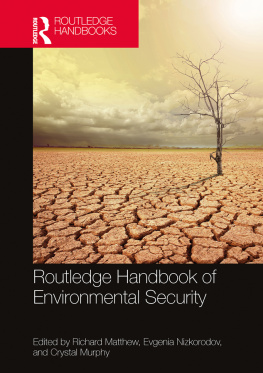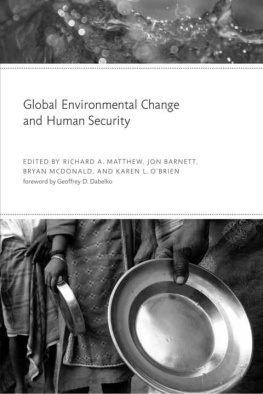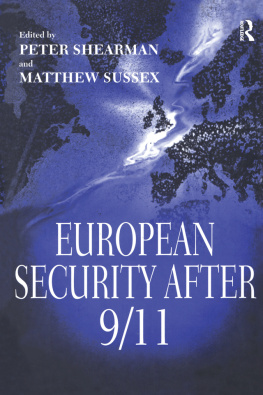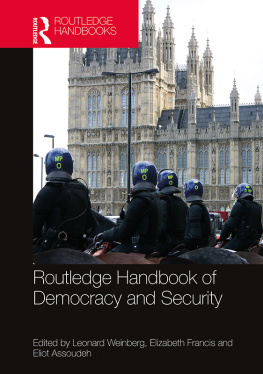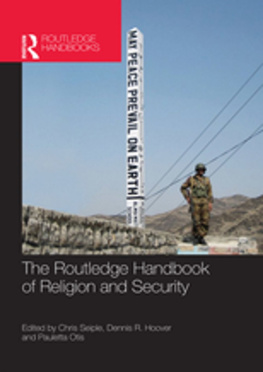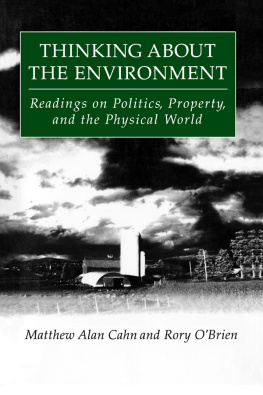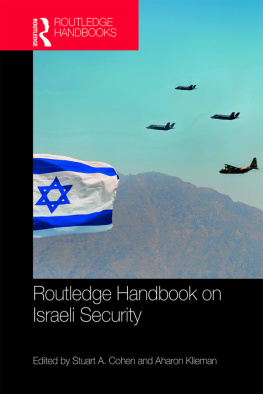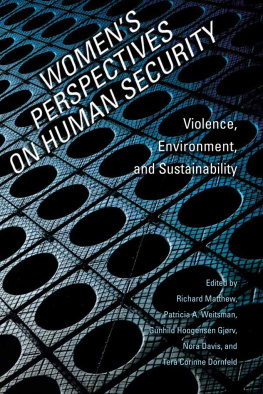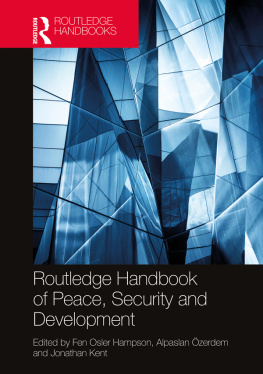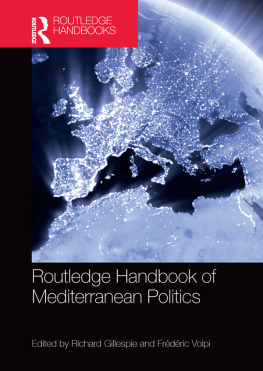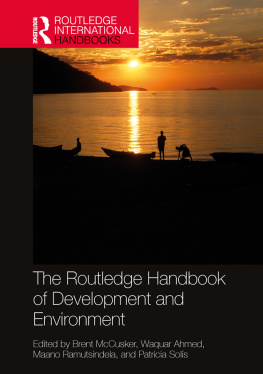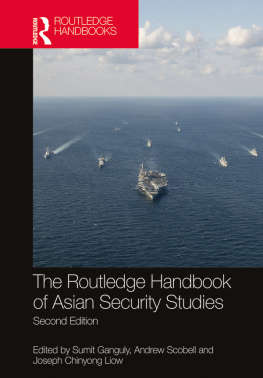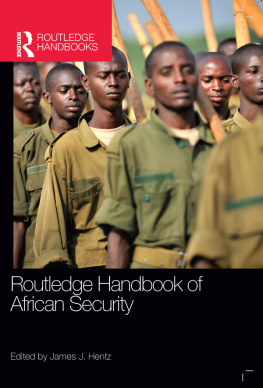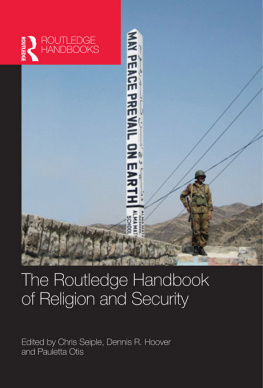Routledge Handbook of ENVIRONMENTAL Security
The Routledge Handbook of Environmental Security provides a comprehensive, accessible, and sophisticated overview of the field of environmental security.
The volume outlines the defining theories, major policy and programming interventions, and applied research surrounding the relationship between the natural environment and human and national security. Through the use of large-scale research and ground-level case analyses from across the globe, it details how environmental factors affect human security and contribute to the onset and continuation of violent conflict. It also examines the effects of violent conflict on the social and natural environment and the importance of environmental factors in conflict resolution and peacebuilding.
Organized around the conflict cycle, the handbook is split into four thematic sections:
- : Environmental factors contributing to conflict;
- : The environment during conflict;
- : The role of the environment in post-conflict peacebuilding; and
- : Cross-cutting themes and critical perspectives.
This handbook will be essential reading for students of environmental studies, human security, global governance, development studies, and international relations in general.
Richard Matthew is Professor of Urban Planning, Public Policy, and Political Science and Associate Dean of Research and International Programs at the University of California, Irvine, USA.
Evgenia Nizkorodov is a research fellow at the University of California, Irvine Blum Center for Poverty Alleviation, USA.
Crystal Murphy is Associate Professor of Political Science and Director of the MA International Studies program at Chapman University, USA.
Routledge Handbook of
ENVIRONMENTAL Security
Edited by Richard Matthew, Evgenia Nizkorodov,
and Crystal Murphy with Kristen A. Goodrich,
Ashley Hooper, Bemmy Maharramli,
Maureen J. Purcell, and Paroma Wagle
Cover credit: Getty Images
First published 2022
by Routledge
2 Park Square, Milton Park, Abingdon, Oxon OX14 4RN
and by Routledge
605 Third Avenue, New York, NY 10158
Routledge is an imprint of the Taylor & Francis Group, an informa business
2022 selection and editorial matter, Richard Matthew, Evgenia Nizkorodov, and Crystal Murphy; individual chapters, the contributors
The right of Richard Matthew, Evgenia Nizkorodov, and Crystal Murphy to be identified as the authors of the editorial material, and of the authors for their individual chapters, has been asserted in accordance with sections 77 and 78 of the Copyright, Designs and Patents Act 1988.
All rights reserved. No part of this book may be reprinted or reproduced or utilised in any form or by any electronic, mechanical, or other means, now known or hereafter invented, including photocopying and recording, or in any information storage or retrieval system, without permission in writing from the publishers.
Trademark notice: Product or corporate names may be trademarks or registered trademarks, and are used only for identification and explanation without intent to infringe.
British Library Cataloguing-in-Publication Data
A catalogue record for this book is available from the British Library
Library of Congress Cataloging-in-Publication Data
A catalog record for this book has been requested
ISBN: 978-1-138-09229-7 (hbk)
ISBN: 978-1-032-14980-6 (pbk)
ISBN: 978-1-315-10759-2 (ebk)
DOI: 10.4324/9781315107592
Typeset in Bembo
by Apex CoVantage, LLC
Contents
Richard Matthew and Evgenia Nizkorodov
Carl Bruch, David Jensen, and Monica Emma
SECTION I
Environmental factors contributing to conflict
Michael T. Klare
Philippe Le Billon
Jon D. Unruh
Vandana Asthana
Alec Crawford and Clare V. Church
SECTION II
The environment during conflict
Charles Closmann
Kenneth R. Rutherford and Paige Ober
Pivi Lujala, Ashley Hooper and Maureen J. Purcell
Evgenia Nizkorodov and Paroma Wagle
Colin Walch
James Orbinski, Richard Matthew, Evgenia Nizkorodov and Sifat Reazi
SECTION III
The role of the environment in post-conflict peacebuilding
Michael D. Beevers
Bemmy Maharramli
Larry A. Swatuk
Richard Matthew
Brett F. Sanders, Richard Matthew, Adam Luke, Kristen A. Goodrich, Victoria Basolo, Ana Eguiarte, Danielle Boudreau and David L. Feldman
SECTION IV
Cross-cutting themes and critical perspectives
Rita Floyd
Simon Dalby
Florian Krampe, Anders Jgerskog and Ashok Swain
Bishnu Raj Upreti and Evgenia Nizkorodov
Kristen A. Goodrich and Kyle Haines
Silja Halle
David Jensen and Amanda Kron
Evgenia Nizkorodov and Richard Matthew
Figures
Tables
Contributing authors
Vandana Asthana, PhD, is a professor of international relations and environmental policy at Eastern Washington University, USA. Her regional area of expertise is South Asia. Her research includes publications on environment, water, climate, gender, and displacement challenges. She is the author of Water Policy Processes in India: Discourses of Power and Resistance, Politics of the Environment, and Water Security in India and South Asia.
Victoria Basolo, PhD, is a professor of urban planning and public policy at the University of California, Irvine, USA. Her research focuses on housing policy, environmental hazards, urban governance, and the consequences of urbanization. Her current work, initiated under the Fulbright Scholar Program, focuses on urbanization in Malta.
Michael D. Beevers, PhD, is an associate professor in the Department of Environmental Studies at Dickinson College, USA. His work has appeared in numerous journals and book chapters and his book, Peacebuilding and Natural Resource Governance after Armed Conflict: Sierra Leone and Liberia, was published by Palgrave Macmillan in 2019.
Danielle Boudreau is currently a National Reserve System Training Lead at the National Oceanic and Atmospheric Administration, where she leads a Coastal Training Program for the National Estuarine Research Reserve System, including 29 reserves located in 23 states and Puerto Rico. Previously, Ms. Boudreau served as a resilience initiative lead and a coastal management specialist at the Tijuana River National Estuarine Research Reserve in San Diego, California, USA.
Carl Bruch, JD, is the director of international programs at the Environmental Law Institute (ELI) and the founding president of the Environmental Peacebuilding Association (EnPAx) in Washington, DC, USA. He has edited more than ten books and authored more than 80 journal articles, book chapters, and reports.
Clare V. Church is a writer and researcher based in Aberystwyth, the United Kingdom. She is currently completing her doctoral studies. Her previous work with the International Institute for Sustainable Development focused on developing research and publications regarding the intersections among the environment, conflict, and peacebuilding.


